Calendar Management - Empower Individuals & Drive Change
Empower individuals and drive change with strategic calendar management. Discover how improving calendar habits and leveraging data insights can...
Discover the importance of calendar management, its challenges, and how to leverage calendar analytics for improved productivity
Managing calendars effectively is a critical aspect of modern work life. It's not just about tracking meetings or deadlines, but strategically organizing time to enhance productivity, reduce stress, and maintain a balanced work-life dynamic.
Simply put, calendar management is the practice of organizing one's time to boost productivity and minimize stress. It involves scheduling tasks, tracking appointments, and strategically optimizing how time is spent.
However, as straightforward as it may sound, effective calendar management is far from easy, especially in the context of remote work productivity where the lines between personal and professional time can often blur. This is where calendar analytics can be a game-changer.
In this article, we will explain in more detail what calendar management means, explore its challenges, and introduce high-level strategies to tackle these challenges. We will also touch upon the role of calendar analytics in enhancing calendar management.
In this blog post:
So, whether you're a team leader looking to improve your team's productivity or an individual trying to make the most of your workday, this article has something for you. Let's get started with a more detailed definition of what calendar management means.
Calendar management is a strategic process that involves organizing, controlling, and optimizing one's time to enhance productivity and balance. It's more than just scheduling meetings or tracking tasks. It's about understanding how time is allocated, resolving conflicts, and making informed decisions to best utilize our time. The ultimate goal of effective calendar management is to reduce stress, increase efficiency, and improve both individual and team performance.

To break it down further, let's look at the key elements of calendar management:
Scheduling: This involves planning your activities and allocating specific time slots for each task or meeting. Effective scheduling requires a clear understanding of your priorities and the estimated time required for each task.
Tracking: Keeping track of your scheduled activities is crucial. This includes monitoring deadlines, following up on tasks, and ensuring that you're sticking to your planned schedule. Tracking also involves adjusting your schedule as needed to accommodate unexpected changes or emergencies.
Strategic Decision-Making: Calendar management isn't just about filling up your schedule. It's about making strategic decisions on how to best use your time. This could involve delegating tasks, setting aside time for deep work, or blocking off time for rest and relaxation.
Conflict Resolution: Conflicts in scheduling are inevitable, especially in a team setting. Effective calendar management involves resolving these conflicts in a way that minimizes disruptions and ensures that all necessary tasks are addressed.

By understanding and implementing these elements, you can take control of your calendar and ensure that your time is spent effectively. In the next section, we'll delve into the challenges of calendar management and how you can overcome them.
While the benefits of effective calendar management are clear, achieving it is not without its challenges. Here are some of the most common issues people face when trying to manage their calendars effectively:
Overbooking: One of the most common challenges in calendar management is overbooking. This happens when too many tasks or meetings are scheduled in a day, leaving little to no time for breaks or unexpected tasks. Overbooking can lead to stress, burnout, and decreased productivity.
Read more about reducing meeting overload.
Time Zone Differences: For remote teams spread across different time zones, scheduling meetings can be a logistical nightmare. Finding a time that works for everyone can be difficult, and it's easy for miscommunications to occur.
Lack of Prioritization: Without clear priorities, it's easy to fill your calendar with low-value tasks while high-value tasks get pushed to the side. Effective calendar management requires understanding the value of each task and scheduling time accordingly.
Interruptions and Distractions: Even with a well-planned calendar, unexpected interruptions and distractions can throw off your schedule. This is particularly challenging in a remote work environment, where home distractions are plentiful.
Inefficient Meetings: Meetings are a necessary part of work, but they can also be a major time drain if not managed effectively. Meetings that run over time, lack a clear agenda, or don't result in actionable outcomes can become very costly for the organisation and lead to frustration.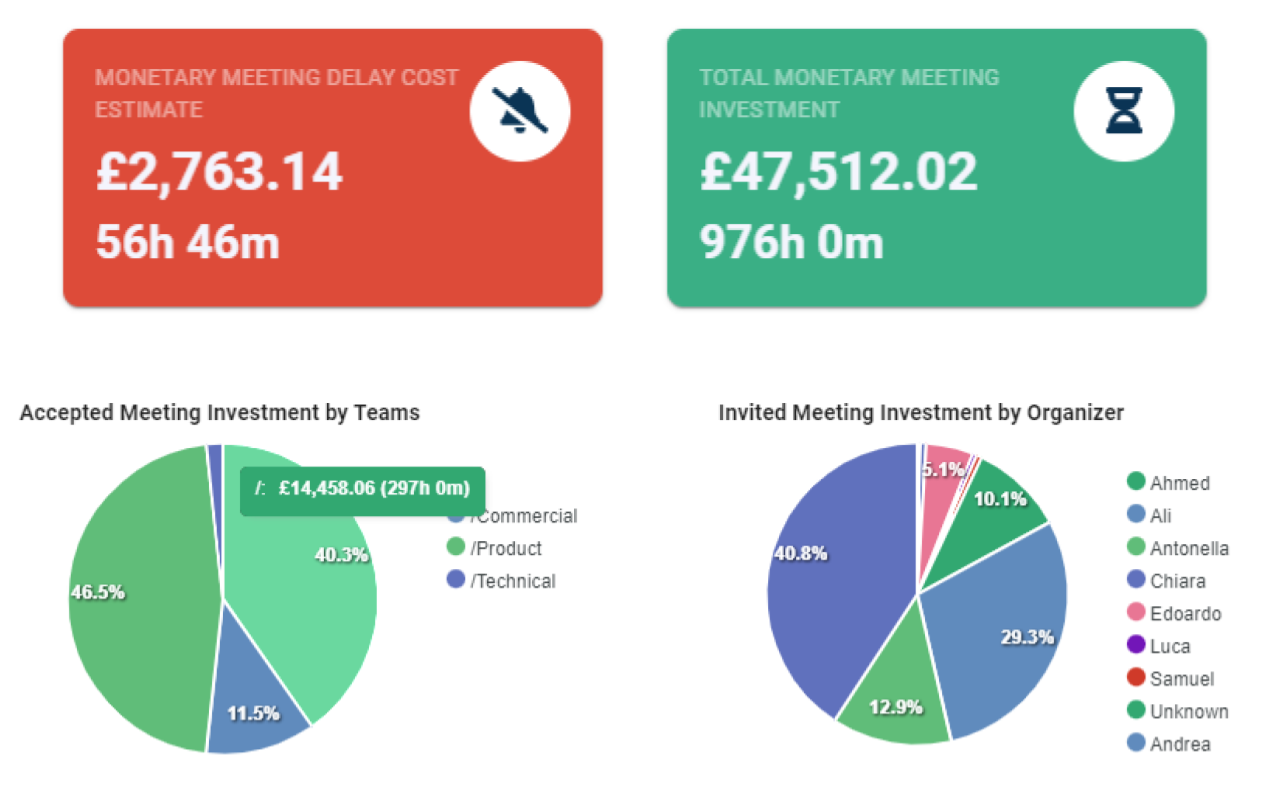
Lack of Flexibility: While a structured calendar is important, it's equally important to allow for flexibility. Things don't always go as planned, and a rigid calendar can make it difficult to adapt to changes.
These challenges can make calendar management seem daunting, but with the right strategies and tools, they can be overcome. In the next section, we'll explore how calendar analytics can help address these challenges and improve your calendar management.
Effective calendar management requires a strategic approach that goes beyond merely scheduling tasks and meetings. Here are some high-level strategies that can help you manage your calendar more effectively:
Prioritize Tasks: Not all tasks are created equal. Some tasks are more important and urgent than others. Use a priority matrix to help you decide which tasks to focus on first. This can help you avoid spending too much time on low-priority tasks.
Block Time for Deep Work: Deep work requires focus and concentration, and it's hard to achieve that when you're constantly interrupted. Block off time in your calendar for deep work, and make sure your team knows not to disturb you during these times.
Schedule Breaks: It's important to take regular breaks to rest and recharge. Schedule short breaks throughout the day, as well as longer breaks for meals. This can help you maintain your energy levels and prevent burnout.
Use Time Batching: Time batching involves grouping similar tasks together and doing them all at once. This can help you work more efficiently and reduce the amount of time you spend switching between tasks.
Limit Meetings: Meetings can be a major time drain. Try to limit the number of meetings you have, and make sure each meeting has a clear purpose and agenda. Also, consider alternatives to meetings, such as email or instant messaging.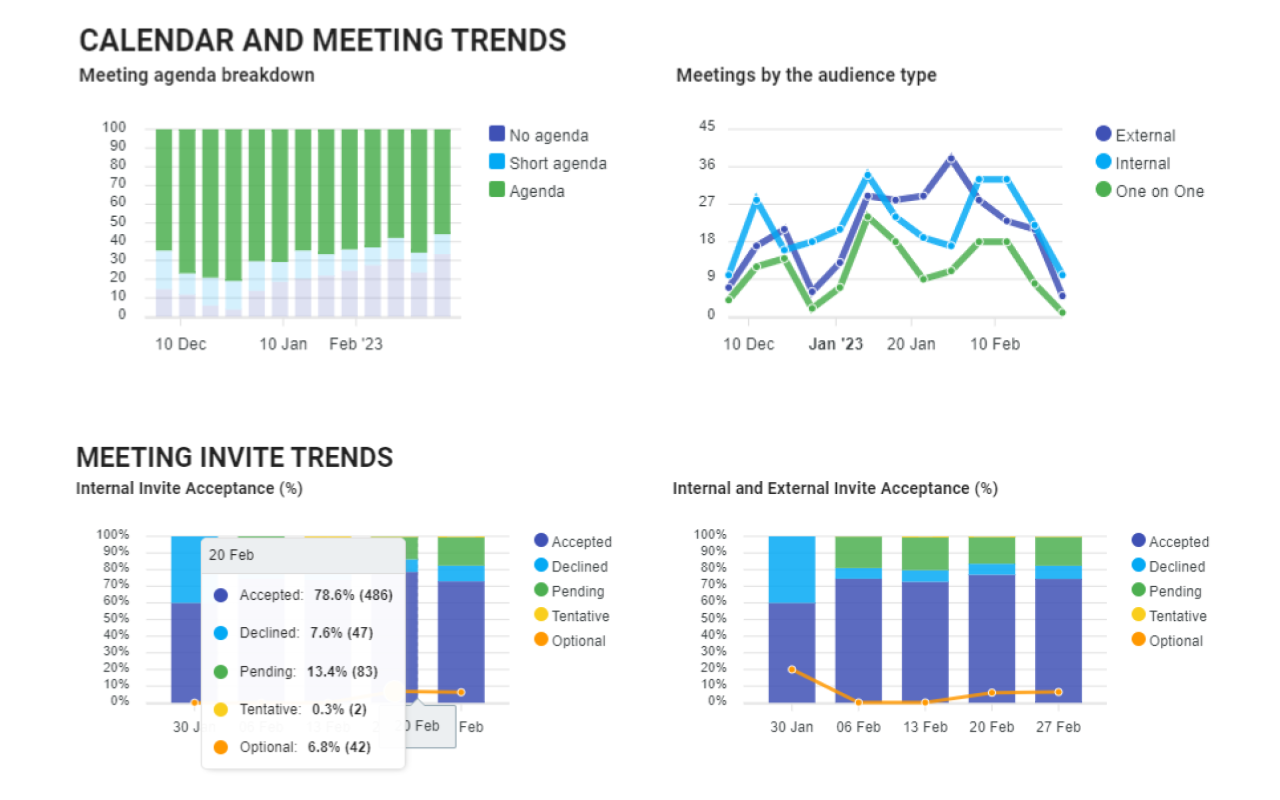
Leverage Technology: There are many tools and apps available that can help you manage your calendar more effectively. These tools can help you schedule tasks and meetings, set reminders, and track your time.
Review and Reflect: Regularly review your calendar and reflect on how you're spending your time. Are you spending too much time on low-priority tasks? Are there tasks that you could delegate to someone else? Here conducting a calendar audit will become handy. Use this information to make adjustments and improve your calendar management.

Remember, effective calendar management is not about cramming as many tasks as possible into your day. It's about making strategic decisions to ensure that you're spending your time in the most effective way possible.
In the digital age, managing calendars manually is no longer practical or efficient. This is where calendar management tools come into play. These tools are designed to streamline the process of scheduling, tracking, and optimizing your time. They offer a range of features that can significantly enhance your calendar management efforts.
Scheduling and Rescheduling: Calendar management tools allow you to easily schedule meetings, appointments, and tasks. They also offer the flexibility to reschedule these events as needed. Some tools even provide automated scheduling features, where the tool suggests optimal times for meetings based on participants' availability.
Time Blocking: This feature allows you to allocate specific time slots for different tasks or activities. For example Google Calendar allows you to specifically set focus time in your calendar. This can help ensure that you have dedicated, uninterrupted deep work time for important tasks.
Shared Calendars: Shared calendars enable teams to have a collective view of everyone's schedules. This can facilitate better coordination and prevent scheduling conflicts.
Reminders and Notifications: These features ensure that you never miss an important event or deadline. They can also be used to remind you of tasks that need to be completed.
Integration with Other Tools: Many calendar management tools, such as Flowtrace, can be integrated with other productivity tools such as email, project management software, and communication platforms. This can provide a more holistic view of your work and further streamline your processes.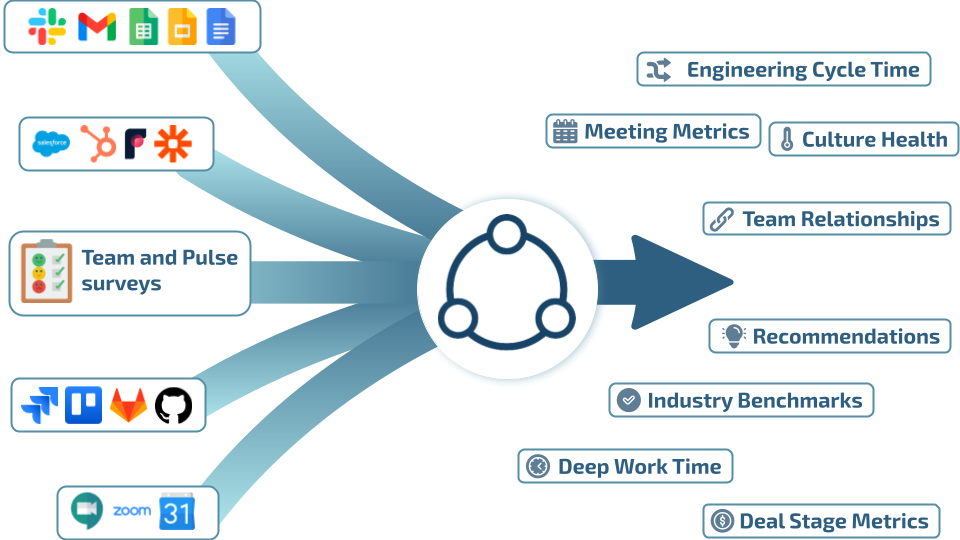
Calendar Analytics: Some sophisticated calendar management tools offer advanced calendar analytics features. These can provide insights into how your time is spent, helping you make more informed decisions about your time management.
Examples of popular calendar apps include Google Calendar, Microsoft Outlook, and Apple Calendar. There are also more specialized tools like Calendly for scheduling, Asana for task management, and Flowtrace for collaboration analytics.
Remember, the key to effective calendar management is not just about using a tool, but using it effectively. It's about understanding your time management needs and leveraging the tool's features to meet those needs.
In the next section, we'll delve into how you can leverage calendar analytics to take your calendar management to the next level.
While traditional calendar management tools offer a range of features to help organize and schedule your time, calendar analytics takes this a step further. It provides a deeper understanding of how your time is spent, offering insights that can help you make more strategic decisions about your calendar management.
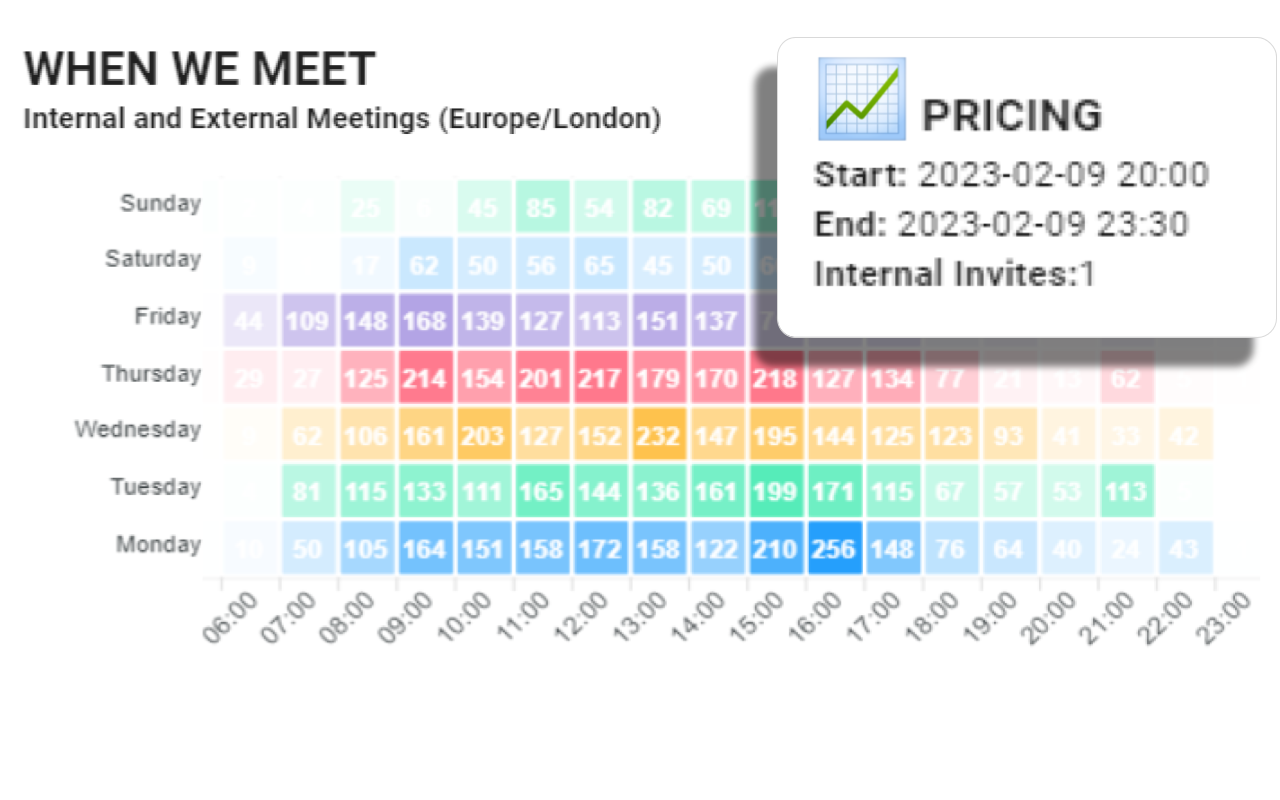
Here's how you can leverage calendar analytics:
Calendar analytics can help you identify patterns in your schedule. For example, you might find that you tend to schedule most of your meetings in the morning, leaving your afternoons free for focused work. Or, you might discover that your meetings tend to run over their scheduled time, indicating a need for better meeting management.
By understanding your scheduling patterns, you can make more informed decisions about when to schedule certain types of tasks or activities. For instance, if you find that you're most productive in the mornings, you might choose to schedule your most challenging tasks during this time.
Calendar analytics can help you identify if you're spending too much time in meetings, a common issue in many organizations. By understanding how much of your time is spent in meetings, you can take steps to reduce meeting overload, such as setting stricter meeting agendas or reducing the number of unnecessary meetings.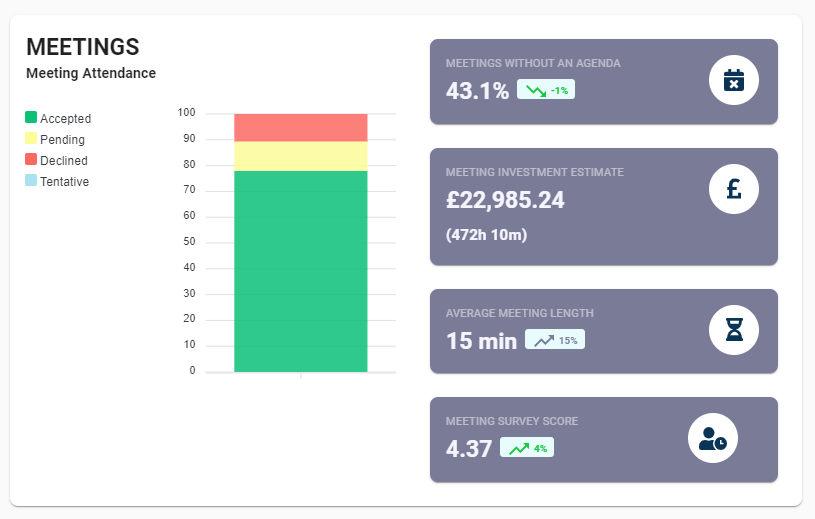
Overall, the insights provided by calendar analytics can help you improve your time management. By understanding how your time is spent, you can make strategic adjustments to your schedule to ensure that you're making the most of your day.
In essence, calendar analytics provides a data-driven approach to calendar management. It offers a way to move beyond simply organizing your schedule to truly optimizing your time. By leveraging calendar analytics, you can enhance your productivity, reduce stress, and improve your overall work-life balance.
In the next section, we'll look at how Flowtrace can help you leverage calendar analytics to improve your calendar management.
In the world of remote work, effective calendar management is more crucial than ever. With the challenges of coordinating across time zones, maintaining work-life balance, and ensuring productive use of time, traditional calendar tools may not be enough. This is where calendar analytics comes into play.
By providing a deeper understanding of how time is spent, calendar analytics empowers individuals and teams to make strategic decisions about their time management. Whether it's identifying patterns in your schedule, optimizing your meeting times, or reducing meeting overload, calendar analytics offers a data-driven approach to enhance your productivity and work-life balance.
In essence, calendar analytics is not just a tool, but a strategy for success in the remote work environment. It's about moving beyond simply organizing your schedule to truly optimizing your time. And in today's fast-paced, remote work world, that can make all the difference.
So, are you ready to take your calendar management to the next level? Start leveraging the power of calendar analytics today and unlock a new level of productivity and balance in your remote work life.
Empower individuals and drive change with strategic calendar management. Discover how improving calendar habits and leveraging data insights can...
Improve your productivity and time management with calendar analysis. Flowtrace's calendar analytics can optimize scheduling and enhance meeting...
Optimize your team's calendar management with essential meeting rules for calendar to boost productivity, reduce friction, and enhance collaboration....